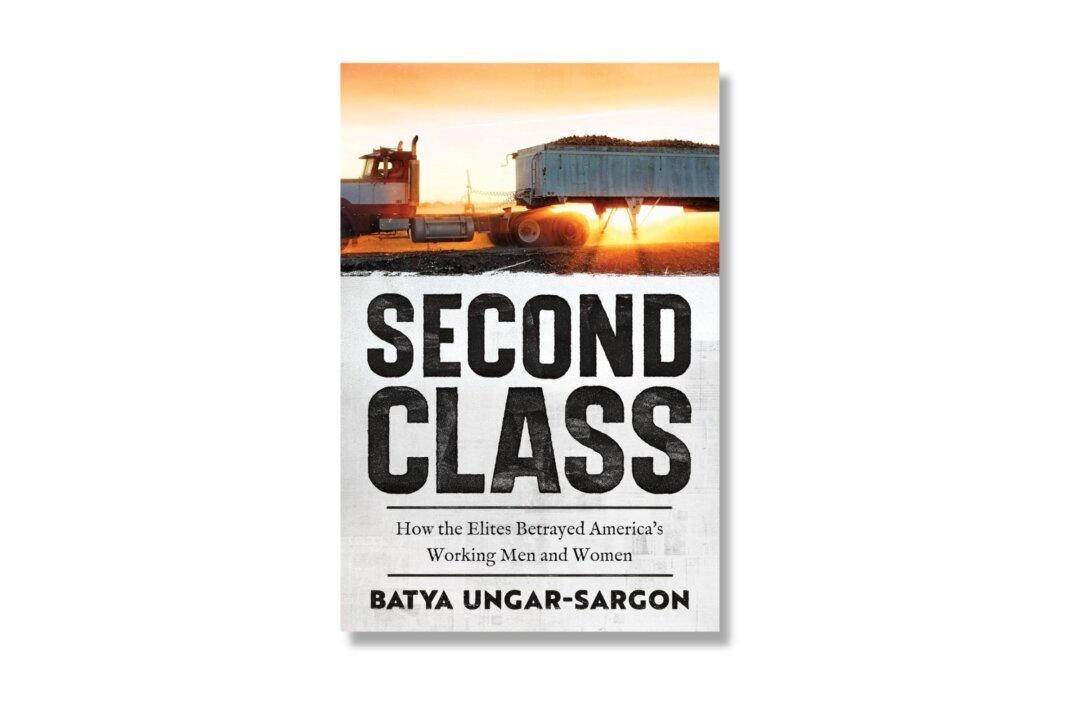The United States has long prided itself on being a classless society where anyone who works hard and plays by the rules can achieve the American Dream. Is that still true?
Today, there are fewer opportunities for workers without a college degree. Between crippling inflation and millions of illegal immigrants straining the housing and job markets, many of the working class say they are working twice as hard in order to maintain their standard of living.
Newsweek Opinion Editor and author Batya Ungar-Sargon believes there is a growing class divide between service and knowledge workers, and that this emerging class divide has become the defining characteristic of 21st-century life.
In her thought-provoking book, “Second Class: How the Elites Betrayed Working Men and Women,” she shares how the largest segment of American workers, the working class, no longer have a voice in the public sphere. Even worse, both political parties are actively working against their interests.
“Republicans rail against wokeness while protecting corporate greed, while Democrats push for more welfare while welcoming millions of migrant workers. Both have abandoned the working class whose labor we all rely on to survive,” she writes.
In the Working-Class Trenches
When researching her book, the author visited several states and interviewed a wide cross-section of working-class Americans of different races, genders, and family structures. She talked to fast food workers, truck drivers, health care aides, police officers, and many in the service and hospitality industries about their experiences, challenges, and personal perceptions of today’s job opportunities. Some findings she shared are surprising.“Even if someone has been with a company for five or ten years and a better paying position opens up, they normally hire outside of the company with someone that has a degree versus an employee that’s been there for so long,” Ms. Day told the author.
The Government’s Wrong Turn
Ms. Ungar-Sargon notes that the national trend for decades has been to emphasize college and knowledge industry jobs over the trades and vocational training. This wasn’t by accident. Politicians from both parties had an ulterior motive. “This emphasis on college turned out to be little more than a sleight-of-hand to disguise the devastating impact globalization was having on the American working class,” she writes.She cites President Barack Obama’s 2013 talk at a Brooklyn technology college. He said “If you don’t have a good education, then it is going to be hard for you to find a job that pays a living wage.” She writes: “The message to working-class Americans wasn’t just that they had missed the boat, but that it was their own stupidity and lack of education that resulted in the widening chasm separating them from the college educated, and that the college educated deserved their good fortune, for they had earned it with their studiousness.”
Righting the Working-Class Ship
Ms. Ungar-Sargon divides her book into two parts. The first defines the American working class. Her research includes in-person interviews with struggling workers who earn $15,000 to $24,000 annually; those “floating” who make $35,000 to $50,000 a year raising families; and those climbing the financial ladder due to personal entrepreneurial skills and dogged determination to better their fate.The second part of her book lays out how the lives of the working class can be improved by addressing the lack of affordable housing, stopping the flow of illegal immigrants who contribute to lower wages, and correcting benefit inequities. These include paying government benefits to unwed mothers but stripping them if she marries or gets a job promotion.
In Part II, the author shares solutions from experts who address the problems confronting the working class. These include Oren Cass, the founder and executive director of American Compass, a conservative group that advises elected officials on the limitations that markets and government face in promoting the general welfare and American security; economists Anne Case and Angus Deaton; former civil rights commissioner Peter Kirsanow, a Cleveland law partner, who works in his firm’s Labor and Employment Practice Group; senior fellow at the Brookings Institution Richard V. Reeves; Jennifer M. Silva, an assistant professor of sociology at Bucknell University; among others.
She asks her interview subjects to comment on those recommendations. Surprisingly, pat ideas like raising the minimum wage were met with skepticism: “Not only is $15 or $16 an hour short of what would sustain a family, but it didn’t seem to offer a path upward toward self-sufficiency, economic stability, and most importantly, opportunity— which is what people were really after,” she writes.
Two main takeaways: Working-class people find partisan politics unimportant, and they have a burning desire for a level economic playing field.
They don’t want handouts, Ms. Ungar-Sargon points out. They desire opportunities and thoughtful legislation that reflects an understanding of the fiscal challenges they face during tight economic times.







